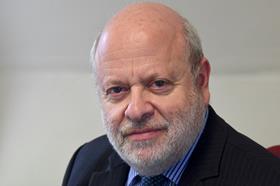he shenanigans in Westminster during the last week of the Truss government did not stop some MPs finding time to discuss lawfare: the use of our legal system by oligarchs and others to intimidate and abuse journalists and civil society actors. Despite the many other calls on MPs’ time, an opportunity was still found in the House of Commons for a lawfare debate. Some take this topic seriously.

Lawfare first raised its head at the beginning of the year, when David Davis MP led a debate on ‘Lawfare and the UK Court’. That named a few solicitors.
He led the second debate, too, called ‘Lawfare and Investigative Journalism’. Not many MPs spoke: the debate lasted for a half an hour, beginning at 10pm, which will soon be longer than … [cue joke about a prime minister’s shelf-life].
It is worth reading the debate in full. Evidence was presented suggesting that SLAPP (strategic litigation against public participation) is continuing full-on, despite the negative publicity from earlier in the year.
Davis highlighted the alleged activities of the former president of Kazakhstan, Nursultan Nazarbayev. He said that news outlets, including the Daily Telegraph, had asked legitimate questions and tried to shine a light on some apparent irregularities and the opaque nature of Nazarbayev’s foundations. Some of the news outlets have now received threatening legal letters telling them to retract their claims and apologise, and a case has been filed in the High Court.
As soon as he said that, Christian Matheson, Labour MP for Chester, intervened to say that he had noticed that the cases had been filed but not served, and he had tabled a written question in the Commons about their effect on media freedom. He was then contacted by lawyers for the company who had asked him to withdraw the question.
Davis, in response, referred to the protection of parliamentary privilege, and said that ‘Nazarbayev has himself had a law passed in Kazakhstan preventing him from being prosecuted there. What he is doing with this lawfare is trying to extend that protection to this country, which, frankly, is an outrage’.
(The debate took place on Monday 17 October. Keen followers of the news will know that Mr Matheson resigned as MP for Chester four days later, on Friday 21 October, after it was recommended that he be suspended from the House of Commons for four weeks over allegations of ‘serious sexual misconduct’ towards a junior member of staff. Mr Matheson denies the allegations. The Mother of Parliaments is in an interesting state.)
A second Labour MP, Dame Margaret Hodge, MP for Barking, also intervened. She raised the case of what she called ‘yet another example of a powerful, wealthy Russian abusing the British legal system through lawfare to muzzle important research in the public interest’. In this case, due to the costs of defending the case — estimated at some £500,000 before trial — Chatham House had been forced to agree to a claim she called ‘meritless’, and had consequently excised all mention of the person from a report. She said that the claimant was a UK resident of Russian-Turkmen origin who has donated to the Conservative party and chaired his local Conservative association.
This time around, no solicitors or law firms were named. The debate focused on the impact on journalists.
For us, the particular interest in the debate came from the reply at the end from then new minister responsible for SLAPPs, parliamentary under-secretary of state for justice Gareth Johnson MP, appointed by Liz Truss. (As of 27 October the ex-parliamentary under-secretary of state for justice.)
He said that anti-SLAPP legislation was still being drafted. Some of the speakers wanted relevant clauses to be added as amendments to the Economic Crime and Corporate Transparency Bill, currently going through parliament. They confirmed that an anti-SLAPP bill was ready for that purpose, and threatened to table amendments accordingly. He said that the government wanted to bring in legislation when it was sure that it had got it right.
He identified the following elements to the draft legislation:
- clearer identification of SLAPPs in primary legislation, with no fixed definition but a list of common characteristics, such as aggressive pre-action communications and targeting individuals where their publishers would be more appropriate;
- an early dismissal process in statute, probably through a three-part test, effectively to stop claimants financially and psychologically exhausting their opponents;
- a new costs protection scheme to be introduced in secondary legislation (once the common characteristics are set out in statute), to ensure journalists and free speech advocates can litigate without fear of bankruptcy.
As we know, none of this is worth the briefing paper it was written on, because we already have another new government.
Original story and source: The Law Society Gazette